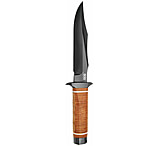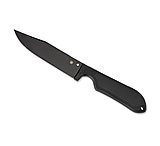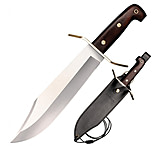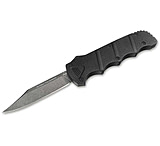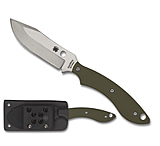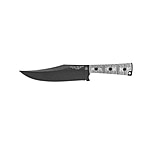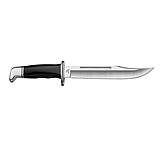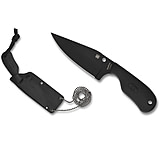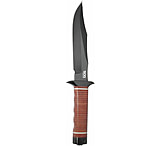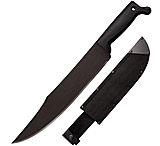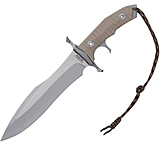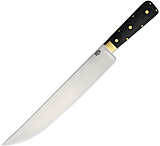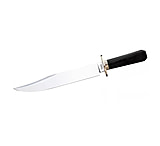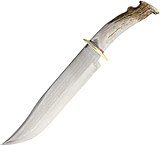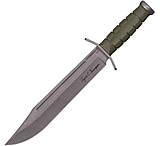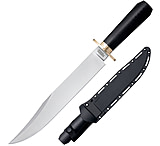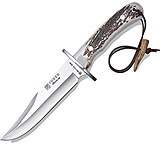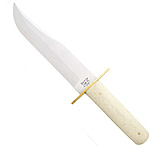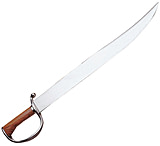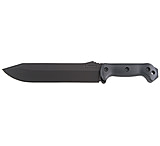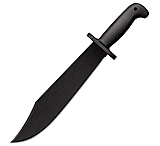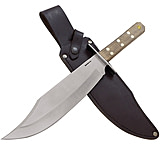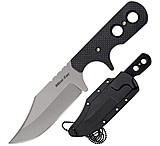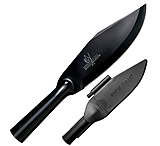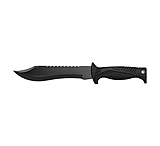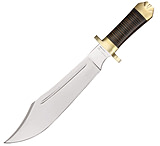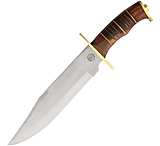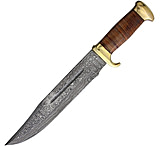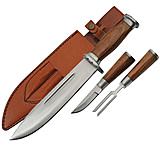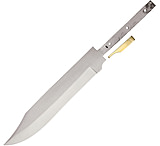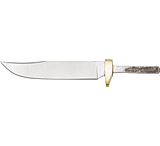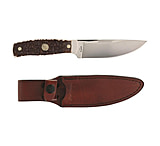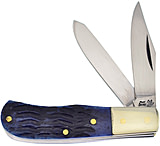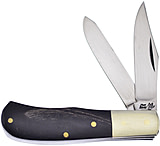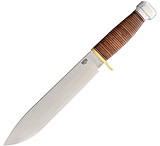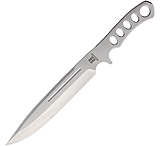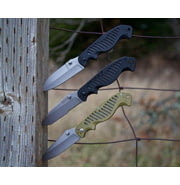Bowie Knives Products including Top Brands like SOG Specialty Knives & Tools, Spyderco, Cold Steel, Boker Plus and More! — 438 products / 487 models — Page 1
The Bowie knife is the most internationally famous American blade, even though its origins predate the name, and many are made and used outside of the USA. The name comes from James Bowie (aka Jim Bowie), an American celebrity knife-fighter and folk hero in the early 19th century. Verifiable historical sources are murky on whether or not he actually carried a Bowie knife before or during the Sandbar Fight of 1827. Still, he certainly did in the years afterward and successfully defended himself against 3 gunmen who'd been sent to assassinate him in 1831. When he died defending the Alamo in 1836, there's no doubt that he had at least one Bowie knife with him at the time. However, historical records show that many different hunters and knife fighters carried early Bowie knife styles dating back at least to the late 18th century Once revolvers came onto the scene in the mid-1800s, Bowie knives fell out of favor as a primary or self-defense weapon. Still, no knife collection is complete without at least one Bowie knife.![]()
What are Bowie knives good for?
Originally designed as a large combat knife, Bowie knives are used for many purposes beyond fighting. Smaller than most machetes, they're often used as a survival knife in the backcountry and come in handy when clearing brush, chopping wood, making shelters, cutlery for butchering game animals, and as a last-ditch self-defense measure against an animal that is attacking. They're also good for showing off, either as part of a knife collection, part of one's field kit, or part of a period-specific costume like those seen at Civil War reenactments and Mountain Man Rendezvous.
Why is a Bowie knife illegal?
The legality of owning or carrying a Bowie knife varies from jurisdiction to jurisdiction. For example, in the USA there are no federal laws against them, but many states and cities have regulations on whether or not you can have one, carry one openly, or concealed-carry a large-blade knife like the Bowie. Some countries have total bans on even owning one, so it's important to check all of your local laws before purchasing a Bowie knife or other long-blade knife. These laws are in place because something as large as a Bowie knife can be used as a dangerous and lethal weapon. Since a Bowie knife is so hard to define, most of these laws have specific knife blade lengths and use "Bowie knife" as an example term, usually along with other examples like "dagger" and "dirk".
What does a Bowie knife look like?
There really is no set definition of what is considered a modern Bowie knife. Some refer to a blade length, restricting the term to only knives with a 9- to a 12-inch blade or longer, but not long enough to qualify as a machete or short sword (roughly 16 inches or longer, although there are longer exceptions). A large Bowie knife like that can have a variety of blade styles, including the triangular double-edged Arkansas Toothpick, a clip point, a buffalo skinning-style wide blade, and with or without a sawback.
Some prefer to go by the overall design of the knife, including the classic clip-point blade, a crossguard between the handle and the blade, and a fixed full-tang (non-folding) blade. When defining a Bowie knife by design alone, they can be as small as a 3-inch blade length and are often called a "mini Bowie".
From a historical perspective, it would be fair to say that any long-blade knife for fighting and/or as a hunting knife from the 19th century that is typically carried in a leather sheath would be considered a variation of a Bowie knife, as that is how they were designed and marketed at the time. Most of those had a hardwood handle, leather handle, wood handle, or bone handle.
What is a Bowie knife worth?
There are a lot of factors that go into what a Bowie knife is worth, and how much you can expect to pay for one. Rare, original collectible antique Bowie knives have been known to sell for hundreds of thousands of dollars. Today lower-quality Bowie knives can be had for as little as $20 and higher-quality models can go for several hundred dollars. Typically the composition of the blade will be a significant factor in price since they are made from a wide variety of carbon steel, stainless steel, Damascus steel, and various other metals. They may have a wood handle made of something like rosewood, metals, or synthetic materials like a micarta handle. Accessories like a leather sheath, nylon sheath, or Kydex sheath can also affect the overall quality and price.
Shop and buy Bowie knives at OpticsPlanet
Here at OpticsPlanet.com, we carry a wide variety of Knives, including Bowie knives, that are sure to fit any budget. We're proud to offer top brands like KA-BAR, Cold Steel, Schrade, and SOG, just to name a few. As an added bonus, most orders over $49.00 get FREE SHIPPING!
Other categories you might be interested in are 9mm Luger Ammunition, Brass Cases, Briefcases, Broadheads & Points, Brooms and Sweepers.




















